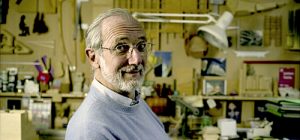This two-part program is included in the “2013 Year of Italian Culture in the U.S.” an initiative supported by the Embassy of Italy in Washington D.C.
The Humanistic Legacy in Renzo Piano’s Architecture: A Panel
September 26, 2013
A Guided Tour of Renzo Piano’s Architectural Projects in NYC
October 5, 2013
About Renzo Piano and his work

Winner of the prestigious Pritzker Prize in 1998, Piano is one of the most important architects in the world today with offices in Paris, New York, and Genoa, together known as Renzo Piano Building Workshop, a name that pays homage to his family’s construction business and his predilection for the practice of “making.” Born, trained, and partially based in Italy, Piano has embraced projects in various parts of the world with an approach that blends sensitivity towards the history of their environment with an awareness of their contemporary function for public and specialized use (Potsdamer Platz master plan, Kansai Airport in Osaka, California Academy of Science in Los Angeles).
Refreshingly marked by the lack of a signature style in an era of “starchitects,” Piano’s philosophy of space allows him to create in the present while preserving traditional values. As he has himself stated: “Personally, I find that my desire to take unbeaten paths is perfectly in tune with my appreciation for the tradition. Perhaps it is a European trait, perhaps an Italian one specifically. Certainly it is part of the humanist culture’s legacy.” Not coincidentally, Piano has designed or expanded a number of museums and centers around the world as sites of memory and cultural production (Menil in Houston, Tjibaou in New Caledonia, Parco della Musica in Rome, Harvard in Cambridge, Stuart Garden in Boston, etc.), a trait to which the panel devotes particular attention.

![]()
![]()
For events on similar topics, click here
